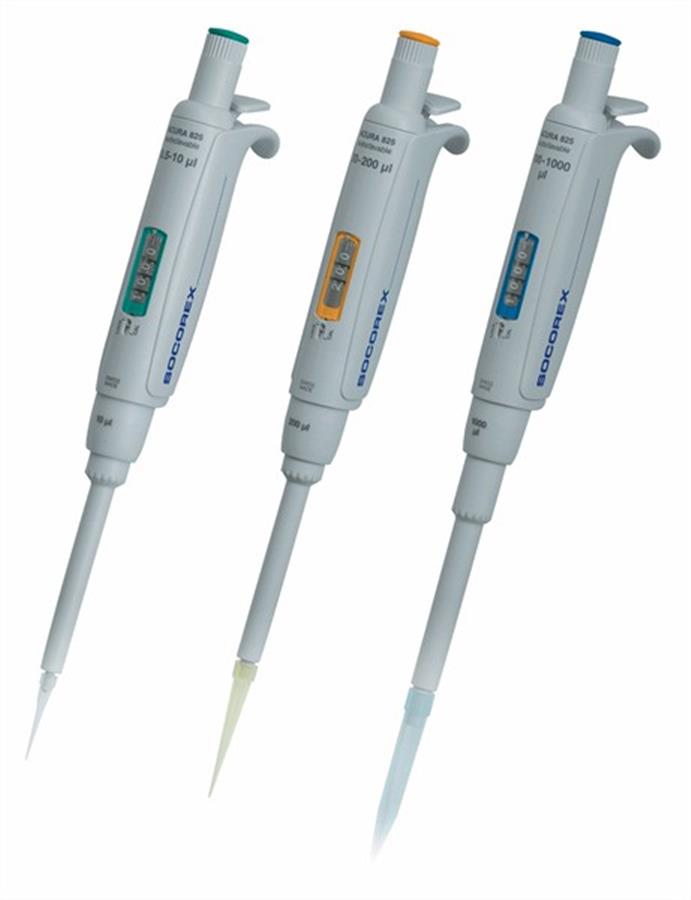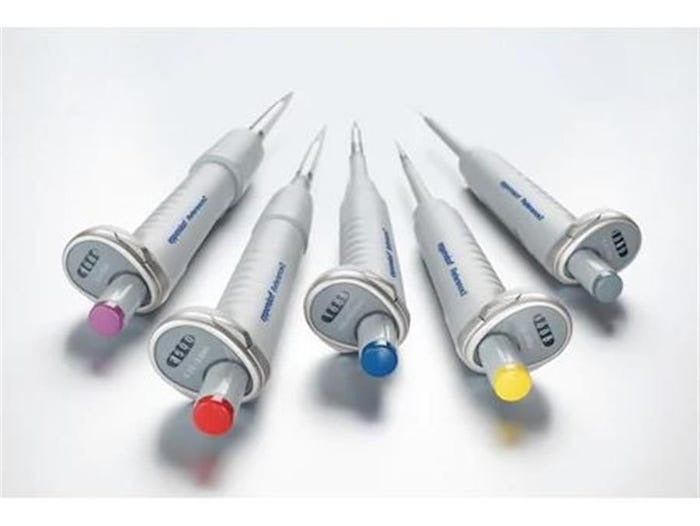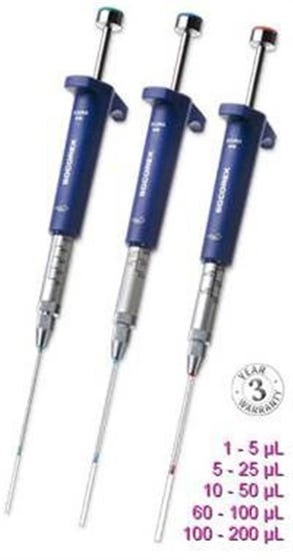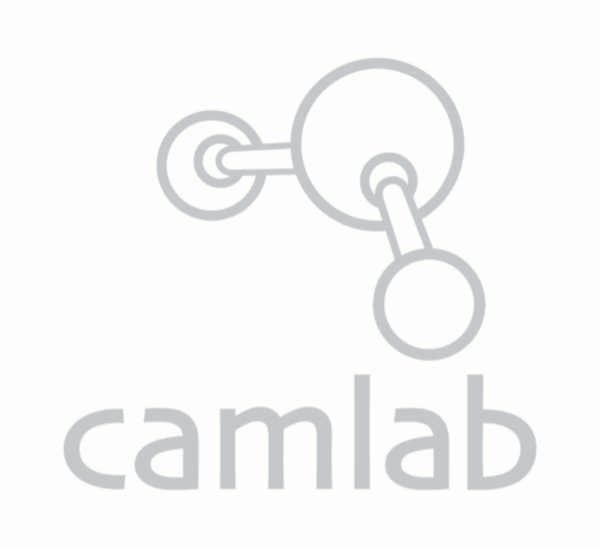Click duplicate ROW to create extra lines
Air cushioned vs positive displacement pipettes
Pipettes are used to transfer specific volumes of solutions from one place to another. These are used mainly in analytical and microbiology, cell biology, DNA analysis, PCR etc, where small volumes are used. Pipettes can come in fixed volumes or as variable volume so you can set the desired volume. Variable volume pipettes come in a particular volume range.
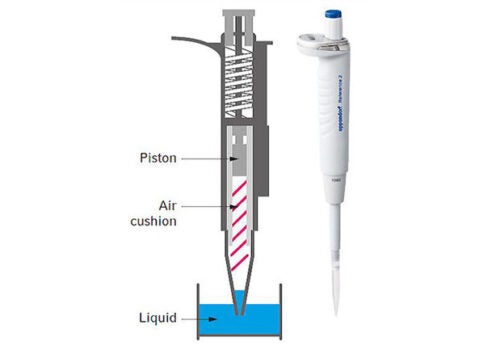

Diagram of air cushioned pipettes by Eppendorf
Air cushioned pipettes
Air cushioned pipettes have air inside the pipette and the pipette tip, which separates the piston from the liquid. The air is pushed out of the tip when the button is pressed causing the liquid to be sucked up into the tip due a vacuum being formed inside the pipette. A downfall of this pipette is that temperature can influence the air cushion as it can cause the cushion to shrink or expand, which can influence the amount of liquid that is pipetted. Air cushioned pipettes are best for water or liquids with similar properties. This image from Eppendorf that shows the air cushion inside a pipette, in particular their Research plus/Reference 2 pipettes
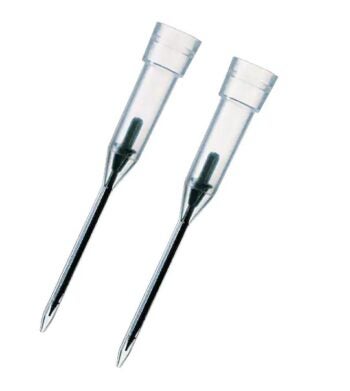

Eppendorf Mastertip piston tips for positive displacement pipettes
Positive displacement pipettes
Positive displacement pipettes uses a tip that has an integrated piston so there is no air between the liquid and the piston. The piston then makes direct contact with the liquid, which is soaked up into the pipette tip. This type of pipette is beneficial for most liquid types, mainly volatile liquids that normally drip out of the air cushioned pipettes. They can also be used for viscous liquids, hot and cold liquids, and corrosive and hazardous liquids. Corrosive/hazardous liquids require a disposable piston tip so the corrosive samples will not touch the pipette itself.
To add a product slider - select ADD CONTENT, then PRODUCTS. Set to carousel and select arrows rather than dots


